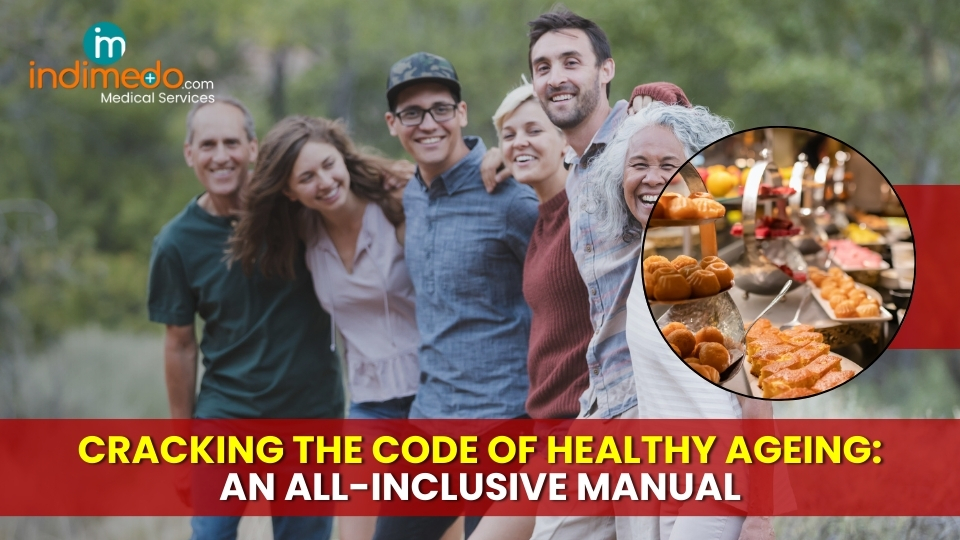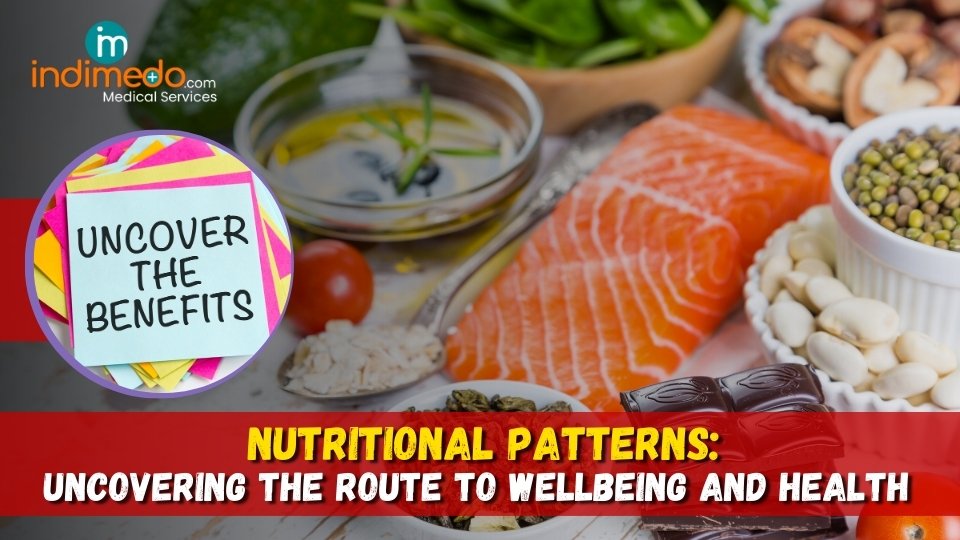Cracking the Code of Healthy Ageing: An All-Inclusive Manual

Introduction
It is inevitable that we will age as we go through life. But accepting ageing as a normal part of life requires knowing how to do so while still being as healthy and vibrant as possible. We explore the facts, tactics, and mysteries of healthy ageing in this extensive guide.
Embracing the journey
Ageing is a transition rather than a decline. Accepting our ageing process helps us develop resilience, wisdom, and a greater appreciation for the experiences we have in life.
The Power of Lifestyle Choices
Although heredity contributes to the ageing process, lifestyle decisions have a big impact on our general health and wellbeing. We may extend our lives and improve our quality of life by forming wholesome habits and taking care of our bodies and minds.
Navigating common challenges
Age brings with it a number of obstacles, from physical changes to cognitive impairment. These difficulties and live fulfilling later years if we are informed and take preventative action.
The positive ageing movement
There are unavoidably inherited factors that influence an individual's health, both positive and negative. There are also other aspects of health and ageing that are largely beyond our control. But as we get older, being "healthy" means more than simply being free from illness. Every older person can achieve the idea of "positive ageing," also known as "healthy ageing," as long as they try to make better decisions now to enhance their life later on.
Happy ageing means accepting ageing as a normal and healthy aspect of life. It's also the attitude that, as you get older, you will do whatever it takes to keep doing the things you love and find meaningful. Similar to T. Boone Pickens, who put a lot of effort into regaining his speech following strokes.
That most individuals lack Mr. Hendricks' financial means, society must find ways to help seniors embrace positive ageing and pursue their passions, and governments should implement social and health policies that support such endeavours. While some may see these expenses as unnecessary costs to society, in actuality, they are investments in seniors' health.
Understanding the Ageing Process
The physiological changes that come with ageing are crucial to navigating the process of ageing well.
Cellular Ageing
At the cellular level, ageing is characterized by a gradual decline in cellular function and regenerative capacity. Factors such as oxidative stress, inflammation, and telomere shortening contribute to cellular ageing.
Changes in Body Composition
As we age, we experience changes in body composition, including loss of muscle mass, increased body fat, and decreased bone density. These changes can impact mobility, strength, and overall physical function.
Cognitive Decline
Ageing-related cognitive decline, which shows up as modifications in memory, attention, and executive function, is a typical cause for concern. Certain lifestyle choices can help maintain cognitive function and lower the risk of brain diseases like Alzheimer's, even if some degree of cognitive loss is normal.
Strategies for healthy ageing
It takes a holistic strategy that takes into account our mental, emotional, and physical well-being to maintain health and vitality as we age.
Promoting physical health
The cornerstones of physical health in ageing include adequate sleep, a balanced diet, regular exercise, and preventive healthcare. Maintaining mobility and independence can be facilitated by partaking in activities that enhance cardiovascular fitness, strength, flexibility, and balance.
Cultivating Mental Well-Being
Maintaining social and mental engagement is essential for emotional and cognitive wellness. Lifelong learning, interacting with loved ones, taking up hobbies and artistic initiatives, and socialising are all beneficial to brain health and can help prevent feelings of isolation and loneliness.
Nurturing emotional resilience
The development of meaningful connections, mindfulness training, and an optimistic outlook are all crucial for psychological health and emotional resilience. Establishing a robust support system and obtaining expert assistance when required can offer priceless assistance during life's obstacles.
Eat healthy, whole food
Beyond just our weight, our diet has an impact on immunity, strength, and energy levels. All of our bodies' and minds' functions are impacted by the foods, beverages, drugs, and supplements we take in.
When it comes to eating a nutritious diet, fresh fruits, vegetables, meats, and whole grains will always be preferred, but grocery shopping and meal preparation can be challenging and costly.
vitamins that support health are quite popular, but before taking any over-the-counter vitamins, make sure to speak with your doctor. supplement may affect any prescription drugs you may take. A lot of over-the-counter vitamins thin the blood or induce vertigo. Always get advice from a healthcare provider if you are unsure.
Conclusion
Adding years to our lives and life to our years are both important aspects of healthy ageing. We may age with elegance, vitality, and purpose if we adopt good habits, take care of our physical, mental, and emotional well-being, and maintain relationships with others.





 Login with Facebook
Login with Facebook
 Login with Google
Login with Google